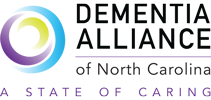What is Young Onset Alzheimer’s?
Young Onset Alzheimer’s is an uncommon form of dementia that strikes people younger than age 65. When Alzheimer’s begins in middle age, misdiagnosis may be more likely. This rare form of Alzheimer’s affects work, finances and family.
How common is it?
Of all the people who have Alzheimer’s disease, about 5 percent develop symptoms before age 65. So if 4 million Americans have Alzheimer’s, at least 200,000 people have the young-onset form of the disease. Young Onset Alzheimer’s has been known to develop between ages 30 and 40, but that’s very uncommon. It’s more common to see someone in his or her 50s who has the disease.
What causes it?
Some people with Young Onset Alzheimer’s have the common form of the disease, and experts don’t know why these people get the disease at a younger age than others do. For most, however, Young Onset Alzheimer’s runs in the family. They’re likely to have a parent or grandparent who also developed Alzheimer’s at a younger age.
Young Onset Alzheimer’s that runs in families is linked to three genes that differ from the APOE gene that can increase your risk of Alzheimer’s in general. The genetic path of inheritance is much stronger in Young Onset Alzheimer’s. If you have a genetic mutation in one of those three genes — the APP, PSEN 1 or PSEN 2 — you may develop Alzheimer’s before age 65.

